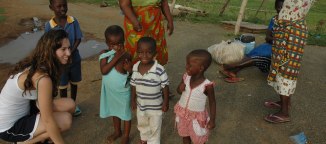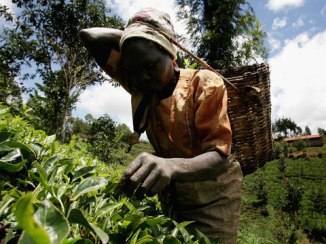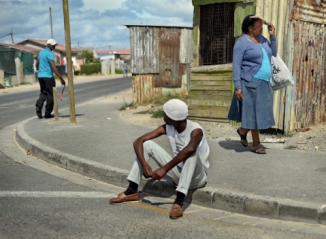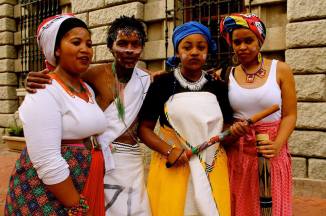– Written by Ziphozakhe Hlobo
“Abantu bahamba, babalek’ ilizwe lembeleko, bazula bazula bazula zonk’ izizwe befun’ injabulo.” – The Muffinz’s song, Khumbul’ekhaya
The Diaspora was a big ol’ white cruel bustard.
Left dismembered identities then lost identities and then forced new identities.
Cries, hardships, fights and anguish.
Sadness, brokenness, loneliness, loss, in general, wretchedness of Africa, poverty, war, hate, hostility and brutality.
Apartness, apartheid, tribalism and war, a decay of a moral fibre and some nervous conditions written on the foreheads of mothers in fields with baby boys and girls on their backs.
Husbands, somewhere building tar roads or prestigious hotels or cleaning swimming pools.
Seemingly sane, silently insane.
We now have a lot of amnesia because we always speak of the Diaspora as something that happened a long time ago. We refuse to infuse it in our contemporary lives as black people today, because actually, the image of a black person with a check bag, known as “Masigoduke,” in isiXhosa, is still very familiar.
Moving.
“Molweni meza! Uvile uba siyadudulwa kwakhona?”
“Siyawasiwa phi ngoku meza?”
“Kwezambacu zingaphaya, kuthwa uthengiselwe oosomashishini baseMelika lomhlaba.”
Inconveniently so.
The rural space (at least in South Africa) is a white-supremacy creation so it is somewhat futile without the resources to utilise it. But also, if you go back to the 1913 Land Act, you will find that black people were allocated the worst parts of the land. So, we move to the urban cities for a “better life,” which ends up being in the slums of the cities, sometimes with no electricity or running water.
You wait until your shack has a registered number, and then in years to come, the government builds you a Redistribution Development Project house (RDP). It all depends on how honest and proactive your local government is. Sometimes how lucky (connected) you are.
In my Primary School, they had government bread that they used to bring for children who came from really poor backgrounds; break time was RDP time, as we called it. So, all my childhood, I thought RDP was that type of bread. But, even in the bread example (which was good by the way because it fed hungry children), you start to see that black people always assume the begging helpless position. You live in an RDP house, your child goes to a government school, gets fed RDP meals at school and you receive grant money for them. That’s a typical black story. Helpful as they are, but . . . sorry . . . Why do we suddenly need these intervention methods in our homeland?
Anyway, why do I think the Diaspora is a contemporary phenomenon?
Well, my mother moved from her home in Cofimvaba, to the streets, and then to her house in Queenstown, and then to my father’s family house Engcobo, when she got married. She then moved back to Queenstown for work, and then to Port Elizabeth to stay with my father’s sister a little while, and then to Cape Town.
In Cape Town, she moved from Site B, to Site C, then back to Site B where she passed away and went to her grave next to my grandmother’s place of rest, Engcobo.
I was born when she was already in Queenstown the second time, I moved to Port Elizabeth and remained when she left for Cape Town. I then started visiting her in Cape Town every December, and then a few years after her passing, I went to stay in Cape Town.
I have vivid childhood memories of Cape Town, like building a Christmas tree in my aunt’s house in Khayelitsha. The most whirlwind memory I have is the year 2000.
“We’ll be ready, we’ll be there, 2000 here we go!” sang the promotional songs on Television and radio. “It’s the Millennium!” I would say, at only nine years of age, hardly sure what any of it meant. Kwaito music was, then, a hit. Mdu, especially. Back in Port Elizabeth, we used to tease my friend, Nomsa, every time Mdu’s song called “Mama ka Nomsa” played on the radio.
I also remember visiting my other aunt still in Cape Town, who used to tell us about everything. Sex, love, neighbours, witchcraft, crime, jealousy, bad friends, you name it, she spoke about it.
“Do you have a boyfriend?” she’d also ask some uncomfortable questions that led to heads bowed down, cheeks turning pink and a few chuckles among us, children. When Yizo-yizo was playing on TV, she didn’t do what my aunt in Port Elizabeth did – chase us out of the room – but she let us watch with her. That was really nice, because we didn’t have to pretend like we were playing and accidentally ended up in the TV room in order to see snippets of Yizo-yizo. We also didn’t have to make uncalled for tea for elders just to bring it to them at the TV room so we can see snippets of Yizo-yizo and at least have something to talk about when other children were talking the next day. We could just be there, rightfully so, and endure all the awkward moments of intimacy by getting busy with a toy or chasing away rats until a moment was finished.
Late afternoons with her were absolute bliss because she would let us watch Bold and the Beautiful while we sat on white chairs on the veranda because the shack was too hot in summer. We’d be eating umphokoqo, going for seconds and thirds, watching people passing by and then talk about them. It was taboo for teenagers to have children, so that would be a topic indulged on for hours, because my aunt said they were walking like they were pushing their big tummies forward, seemingly happy to be pregnant. Others were walking with two or more children to the shops or to their boyfriends. Others lived with their boyfriends, in the infamous “Khunqu,” a place that young people who wanted to do whatever they liked had built for themselves. Well, they had built the shacks there. It was easy; you just bought materials and built your shack anywhere there.
We would laugh at the quarrels between Stephanie and Brooke, as we also listened to our aunt tell us about the man who owns a shop at the corner house, who comes from serving a few years in prison and who is now going insane. What happened to him? We would ask, because we could tell that she was thrilled to tell the story, and when she did, the story would take three hours or more.
Seven years after my mother’s passing, I was finally able to go to Cape Town, so I went to live there for two and a half years. I am currently in Johannesburg, slowly biting on the feeling I have being in a new place, since I have a phobia to commit to anything. I’m indulging; it tastes like a ripe juicy plum. Being here right now is like falling in love, or better yet, it’s like being a kid and seeing everything as a wonder!
But there are times when the heart constantly yearns for a place just like home.
What is home? Where’s your home?
And, what does being homesick feel like?
I don’t know; I’ve become a chameleon lately.
Godspower, one of the poets I met in Kenyatta, told me he suffers from the same dilemma; hence his poetry depicts beautifully some imagery from Nigeria. But, “I’m a child of the world,” he often says in his British-Nigerian or rather Nigerian-British accent. “I’ve lived in London, Russia and Nigeria.”
He already wants to move somewhere else.
He can’t speak his indigenous language. But, he is definitely Nigerian. A bit soft-spoken for a black guy (maybe it’s the accent). But, definitely Nigerian. One of his poems clearly says that he got his first kiss from a girl who is not Nigerian. He’s Nigerian though, his family is and he was born there and he is patriotic. He is Nigerian, the Nigeria that most know for its famous Biafra war, which happened between 1967 and 1970. He hates how commercialised this has become for Nigerian literature.
An interesting thing about him is that he lost his mother and father, so when he does go home, the parents aren’t there. I assume he’s left to imagine that his mother hopes that he can always, every now and again, find the traces of her footsteps back home, though “home” sounds like the colour of resentment in his poem about not being homesick.
There’s a part in his poem where he speaks about kind of not wanting to go home, just because when his mother said she was going home, she never came back.
What is home?
Izingane nezihlobo ziyakhala, zikhumbula ekhaya! – The Muffinz’s song, Khumbul’ ekhaya
It was refreshing to see a poem unpacking this home/identity conflict, which certainly proves that we (as colonised groups) are always negotiating our existence. I know that privileged Europeans and Americans would want to grab on to this homelessness and say, “but, it’s a human dilemma, all of us are always negotiating.”

Image courtesy of http://www.pagusafrica.org/
But, it’s not the same, there is a difference between a German who goes on an exotic journey to Africa to help starving orphans, who does not need a Visa to enter Africa, and an African woman whose life is politically under threat, and who enters the boarders of Europe with a baby on her back and gets raped first. Not saying that all Africans who go to Europe go like this, but making a point about the difference in these two kinds of homelessness. One is out of rebellious privilege and the other out of force, take slavery, for instance. It’s like the story of African Americans or Jews, you know? They are kind of the same pedagogy but at least Jews are almost running the world financially.
African Americans and Native Americans are screwed because they are not wanted in American white supremacy. That’s the homelessness I am speaking about. And, this is one of the discussions we kept having in Kenyatta about America.
“Argh, we should really boycott them, black people are being killed there. Obama has the audacity to come to Africa and talk about gay rights, mean while he is a black president in America and black people are being killed. What the fuck is wrong with these people?”
“Here’s the other thing right . . .” the discussion would continue, “you do not see white people in the face of activism against the killing of black people in America. It’s not their thing to protest about.”
“Oh well,” more inputs, “if it was rhinos being killed, you’d see them asking us to sign some petitions.”
Some giggles from my side.
But, actually, black people are not wanted everywhere. I sometimes see some African Americans campaigning to go back to their home, Africa, and I ask myself, “Are they insane?” Black people are renting in Africa. In fact, in the drive from Kisii to Nairobi, we saw a daunting image of the houses that Kenyan people who are working in some of those big tea farms live in. They literally look like slave houses. Imagine, living in a slave house in your homeland. How dare? So even the home of our origins does not really feel like home, sometimes.

Female farm worker on a Kenyan tea estate (courtesy of http://www.theecologist.org/)
It’s good to recognise these things and understand what role to play as a young person because honestly speaking, we have always theoretically spoken about these dilemmas in studies and intellectual conversations, but being faced with it and actually practically realising that most of Africa is clouded by this Diaspora and lack of ownership is quite different. It’s good to also know because the personal narrative becomes linked to the collective narrative; and you actually realise that you are not alone anymore. The memories of all the places my family moved to are alive like an imagery poem in my heart, and I think they are probably all homes because there’s a piece of them in me and me in them, not?
So, African child, as you also manoeuvre your way from the pits of your rural home, looking for greener pastures in the urban cities, kindly remember to carry tokens of determination to take what should be yours from these corners of wealth that’s hidden from you. Don’t vulnerably look for a home, that’s dangerous, be it personal or socio-political. With a history and present like ours, home is always evolving. I’ve noticed that whenever I try to write anything about home, I write my childhood, and perhaps my home is my childhood, where I was most carefree and happiest. It’s always an African narrative. Africa is distorted and broken. But, Africa has languages, cultures, a rich heritage, and stacks of knowledge, spirituality, love, stories, and people.
It’s got possibilities like you and me!
Africa is within us, I see it even beneath Godspower’s British accent, in the imagery of his poetry is a pool of African memoirs. Africa is us, always ignited by our appetite to keep US alive and radiant and beautiful. To keep our fire burning wherever it is we are! We carry Africa.
Does that sounds like a home?
For more reflections on my Kenya experience, go to my blog, http://ziphozakhe.wordpress.com

